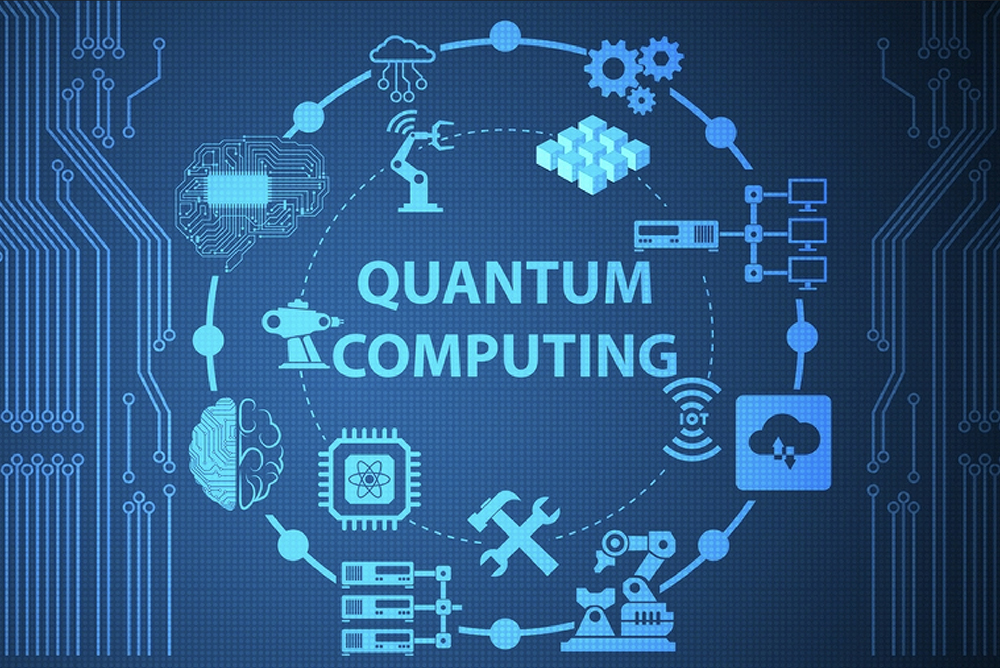Table of Contents
| Section | Description |
|---|---|
| Introduction | Overview of quantum computing and its growing significance in technology and society. |
| What is Quantum Computing? | Explanation of the principles behind quantum computing and how it differs from classical computing. |
| Potential Applications of Quantum Computing | Discussion of the key areas where quantum computing could have a transformative impact. |
| Challenges Facing Quantum Computing | Overview of the technical and practical challenges that need to be addressed for quantum computing to advance. |
| The Future Impact of Quantum Computing | Exploration of the potential long-term impacts of quantum computing on various industries and society. |
| Quantum Computing and Cybersecurity | Analysis of how quantum computing will reshape cybersecurity and the implications for data protection. |
| Conclusion | Summary of the future potential and challenges of quantum computing. |
Introduction

Quantum computing is poised to revolutionize the way we process information, solve complex problems, and approach scientific research. While still in its early stages, the potential future impact of quantum computing is influencing industries ranging from cybersecurity to pharmaceuticals.
As this technology continues to develop, understanding its implications is crucial for anticipating the next major shifts in technology and society.
What is Quantum Computing?
Quantum computing harnesses the principles of quantum mechanics, particularly superposition and entanglement, to perform calculations at speeds unattainable by classical computers. Unlike classical bits that represent data as either 0 or 1, quantum bits (qubits) can exist in multiple states simultaneously, allowing quantum computers to process vast amounts of information more efficiently.
This capability makes quantum computing uniquely suited for solving problems that are currently intractable for classical computers, such as simulating molecular structures for drug discovery or optimizing complex logistical operations.
Potential Applications of Quantum Computing

Quantum computing’s potential applications are vast and varied, promising to transform several key industries:
- Drug Discovery and Healthcare: Quantum computers could simulate molecular interactions at an unprecedented scale, accelerating the discovery of new drugs and treatments. This could lead to more effective therapies and personalized medicine.
- Financial Modeling: The financial industry could benefit from quantum computing’s ability to analyze large datasets and perform complex calculations rapidly, improving risk assessment, portfolio optimization, and fraud detection.
- Artificial Intelligence and Machine Learning: Quantum computing could significantly enhance AI and machine learning models by processing data more efficiently, leading to more accurate predictions and better decision-making capabilities.
- Logistics and Supply Chain Optimization: Quantum algorithms could optimize supply chain operations, reducing costs and improving efficiency by solving complex logistical problems that are currently beyond the capabilities of classical computers.
Challenges Facing Quantum Computing

Despite its immense potential, quantum computing faces several significant challenges:
- Technical Challenges: Building and maintaining stable qubits is extremely difficult due to their sensitivity to environmental factors. Quantum decoherence, where quantum states lose their information, remains a significant hurdle.
- Scalability: Scaling quantum computers to a level where they can outperform classical computers on practical tasks is a major challenge. Current quantum computers are still in the experimental phase, with limited qubits and computational power.
- Error Correction: Quantum error correction is complex and resource-intensive, requiring a large number of physical qubits to maintain a single logical qubit. Developing efficient error-correction methods is crucial for the future of quantum computing.
The Future Impact of Quantum Computing
The future impact of quantum computing could be transformative across various sectors:
- Scientific Research: Quantum computing could accelerate scientific discoveries by enabling simulations and calculations that are impossible with classical computers. This could lead to breakthroughs in materials science, chemistry, and physics.
- Economic and Industrial Transformation: Industries that rely on complex optimization problems, such as logistics, energy, and finance, could be revolutionized by quantum computing, leading to new business models and economic opportunities.
- Global Competition: Quantum computing is likely to become a focal point of global technological competition. Countries and companies that lead in quantum computing could gain significant economic and strategic advantages.
Quantum Computing and Cybersecurity
Quantum computing’s most immediate and profound impact may be on cybersecurity. Current encryption methods rely on the difficulty of solving certain mathematical problems, like factoring large numbers, which classical computers cannot solve in a reasonable timeframe.
However, quantum computers could potentially break these encryption methods, necessitating the development of quantum-resistant cryptography.
The rise of quantum computing could lead to a new era of cybersecurity challenges and innovations, as organizations and governments race to protect sensitive data from quantum-enabled attacks.
Conclusion
Quantum computing holds the promise of solving some of the most complex challenges facing humanity, from developing new medicines to securing our digital world.
However, significant technical and practical challenges remain before this potential can be fully realized. As we look to the future, it is clear that quantum computing will play a pivotal role in shaping the next wave of technological innovation, with far-reaching impacts on industry, science, and society.
Read also:
- The Role of AI in Enhancing Smartphone Photography
- How Wireless Charging Affects Battery Health
- How to Set Up a Secure Home Wi-Fi Network Setup: A Complete Guide
- Exploring the Benefits of OLED Display Technology
References
- Plain Concepts – Quantum Computing: Potential and Challenges
- AllStarsIT – The Future of Quantum Computing and Its Implications for Cybersecurity
- Beyond Technology – Quantum Computing: What It Is, How It Works, and Its Impact on the Industry
- IBM – Quantum Computing
FAQs
1. What is quantum computing and how does it differ from classical computing?
Quantum computing is a type of computing that uses the principles of quantum mechanics to perform calculations. Unlike classical computers that use bits (which can be either 0 or 1), quantum computers use quantum bits or qubits, which can be in multiple states simultaneously (a phenomenon known as superposition).
This allows quantum computers to solve certain complex problems much faster than classical computers, particularly in areas like cryptography, material science, and optimization problems.
2. What types of problems can quantum computers solve?
Quantum computers excel in solving complex problems that involve large datasets, optimization tasks, and simulations that are beyond the reach of classical computers. Examples include:
- Cryptography: Breaking traditional encryption methods by factoring large numbers quickly.
- Drug Discovery: Simulating molecular structures to accelerate the development of new medications.
- Supply Chain Optimization: Enhancing logistics and resource management by solving complex optimization problems.
3. When will quantum computers be widely available?
Quantum computers are currently in the early stages of development and are mostly used in experimental and research settings. It may take several years or even decades before they become widely available for commercial use.
The development of error-corrected qubits and overcoming technical challenges like qubit stability and decoherence are key steps toward making quantum computing commercially viable.
4. What challenges does quantum computing face?
Quantum computing faces several significant challenges, including:
- Decoherence: The tendency of qubits to lose their quantum state due to environmental noise, making it difficult to maintain stable computations.
- Error Correction: Developing effective quantum error correction methods is crucial, as current quantum systems are prone to errors.
- Scalability: Scaling up quantum systems to have more qubits and make them useful for practical applications remains a major hurdle.
5. How will quantum computing impact cybersecurity?
Quantum computing poses a significant challenge to current cybersecurity systems. It has the potential to break widely-used encryption algorithms, which rely on the difficulty of factoring large numbers—a task that quantum computers can perform efficiently. This has led to the development of quantum-resistant cryptography to secure data against future quantum attacks.
6. What industries will be most affected by quantum computing?
Industries likely to be most affected include:
- Finance: For risk analysis, trading algorithms, and cryptographic security.
- Healthcare: Particularly in drug discovery and personalized medicine.
- Logistics: For optimizing supply chains and resource management.
- Scientific Research: Enabling more accurate simulations in physics, chemistry, and materials science.